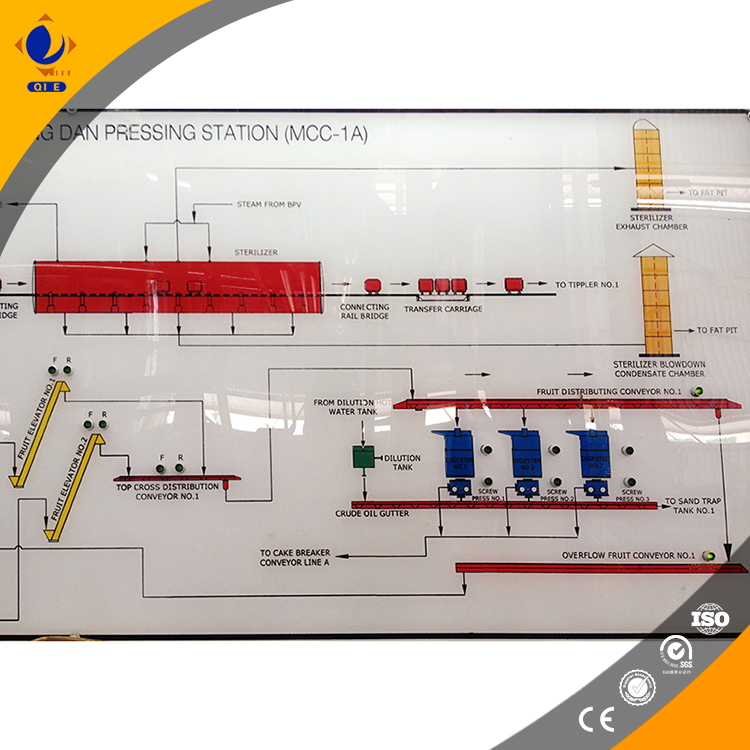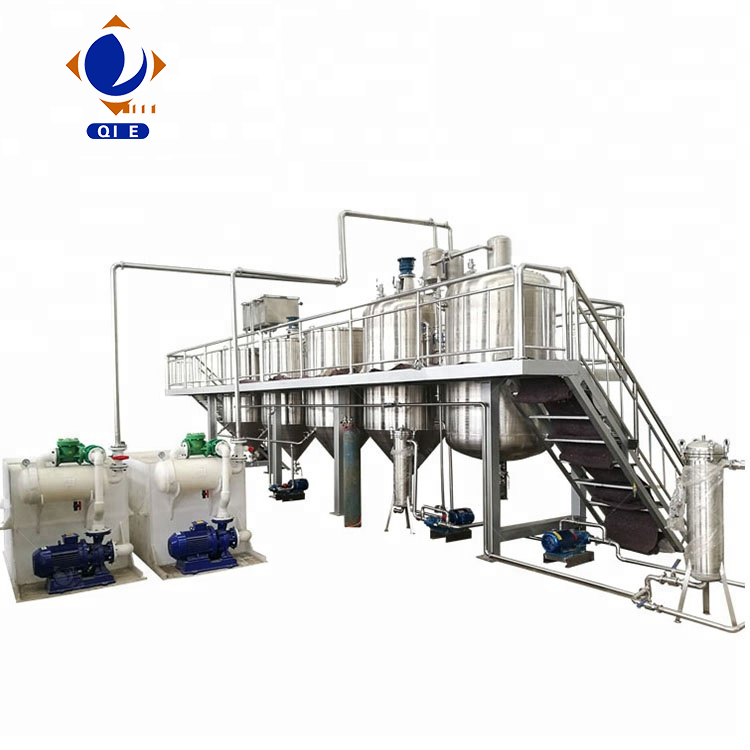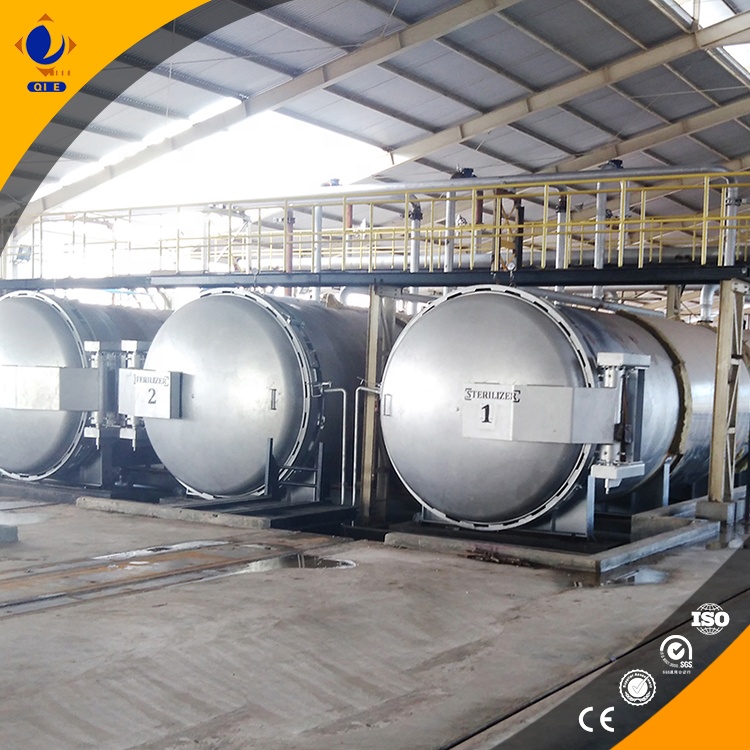Essential On-Site Maintenance: Filter Cloth Replacement Cycle and Equipment Sealing Inspection Techniques for Optimizing Edible Oil Refining Lines
28 09,2025
Application Tips
This article provides an in-depth analysis of impurity removal technologies in industrial edible oil refining, focusing on the four core units: degumming, deacidification, decolorization, and deodorization. It details key technical advancements in modern continuous refining lines, including precise temperature control, vacuum environments, and optimized adsorbent materials to improve purification efficiency. Supported by actual production data, the article evaluates how different processing combinations affect oil quality attributes such as color, smoke point, and oxidative stability. Practical guidelines on filter cloth replacement cycles and equipment sealing inspections are also offered, emphasizing their critical role in maintaining efficient and stable refining operations. Through diagrams, process flowcharts, and real-world case studies, the content enhances operational expertise and reinforces the technological advantages of the refining system, ultimately supporting improved product quality and competitive enterprise performance.

Optimizing Industrial-Scale Vegetable Oil Refining: Filter Cloth Replacement & Equipment Sealing Strategies
In the realm of industrial vegetable oil refining, achieving superior product quality hinges on meticulous control of impurity removal techniques throughout the processes of degumming, neutralization, bleaching, and deodorization. Modern continuous refining lines leverage precise temperature management, vacuum conditions, and advanced adsorbent materials to maximize purification efficiency. This article delves into the technical mechanisms behind these core steps, supported by operational data, and highlights essential onsite maintenance practices like filter cloth replacement intervals and equipment sealing inspections that ensure sustained high-performance operation.
Key Impurity Removal Processes in Vegetable Oil Refining
The refining process targets four major impurity classes: phospholipids removal (degumming), free fatty acids neutralization (deacidification), pigment elimination (bleaching), and flavor elimination (deodorization). Each step relies on both physical and chemical mechanisms optimized by process parameters:
- Degumming: Hydrating phospholipids and insoluble gums to facilitate separation via centrifugation or filtration.
- Deacidification: Utilizing caustic soda or activated adsorbents to reduce free fatty acid content effectively.
- Bleaching: Adsorption of pigments and oxidation products using activated clays or carbons under controlled temperature and vacuum to prevent oil degradation.
- Deodorization: High-temperature steam stripping under vacuum to eliminate volatile odoriferous compounds without compromising oil stability.
Technical Innovations in Continuous Refining Lines
Continuous refining equipment integrates state-of-the-art control technologies that achieve enhanced process stability and product quality:
- Precise Temperature Control: Maintaining exact thermal profiles reduces fatty acid reversion and pigment formation, improving oxidative stability.
- Vacuum Environment Optimization: Ensures efficient removal of volatile impurities during bleaching and deodorization without thermal degradation.
- Superior Adsorbent Selection: Customization of bleaching earths and activated carbons tailored for specific oil types enhances adsorption capacity and prolongs adsorbent life.
In practical terms, a refined continuous line operating with these improved parameters has demonstrated the following performance improvements based on in-house operational data collected over a six-month period:
| Quality Parameter |
Traditional Refining |
Optimized Continuous Line |
Improvement (%) |
| Final Free Fatty Acid Content (mg KOH/g) |
0.25 |
0.10 |
60% |
| Oil Color (Lovibond Units) |
15 |
7 |
53% |
| Smoke Point (°C) |
210 |
230 |
10% |
| Oxidative Stability (hours) |
18 |
28 |
55% |
Onsite Maintenance: Filter Cloth Replacement Cycle
Filter cloths play a pivotal role in ensuring particulate removal efficiency and prolonging equipment lifespan. Industry benchmarks recommend:
- Replacement Frequency: Typically every 4,000 operating hours or every 6-8 weeks depending on feedstock impurity load and operational intensity.
- Inspection Indicators: Pressure differential increases of more than 20% signal filter clogging and justify cloth replacement.
- Material Selection: High durability synthetic fiber cloths with chemical resistance optimize filtration and reduce downtime.
Pro Tip: Employing a filter monitoring system with real-time pressure sensors can proactively alert maintenance teams to schedule timely cloth replacements, minimizing unplanned stoppages.
Ensuring Equipment Seal Integrity for Vacuum Systems
Vacuum integrity is critical, especially during bleaching and deodorization phases. Effective sealing strategies include:
- Routine gasket inspections and replacement based on elastomer aging characteristics; expected service life is 3-6 months under typical operational conditions.
- Leak testing via helium or gas sniffer detection at a minimum quarterly interval.
- Use of high-performance sealants compatible with oil and chemical exposure to prevent degradation.
Consistent sealing maintenance directly correlates to improved vacuum levels, reducing oxidative degradation during deodorization and thus enhancing final product shelf life.

Case Study: Enhanced Operational Stability with Proactive Maintenance
A leading vegetable oil producer implemented a maintenance schedule integrating pressure sensor-based filter cloth lifecycle tracking combined with monthly sealing inspections. Results over a 12-month span showed:
- 15% increase in average operational uptime.
- 20% reduction in unplanned maintenance costs.
- 3% improvement in overall product yield due to minimized oil losses during filtration.
- Customer satisfaction growth reflected by fewer quality complaints related to oil clarity and smell.

Final Thoughts on Operational Excellence
Deploying advanced control technologies combined with disciplined onsite maintenance routines elevates the vegetable oil refining process from a standard operation to a quality-driven production system. Emphasizing the replacement of filter cloths before performance degradation and maintaining airtight seals supports continuous productivity and superior oil characteristics.
Discover Our Advanced Refining Solutions & Expert Support Today








